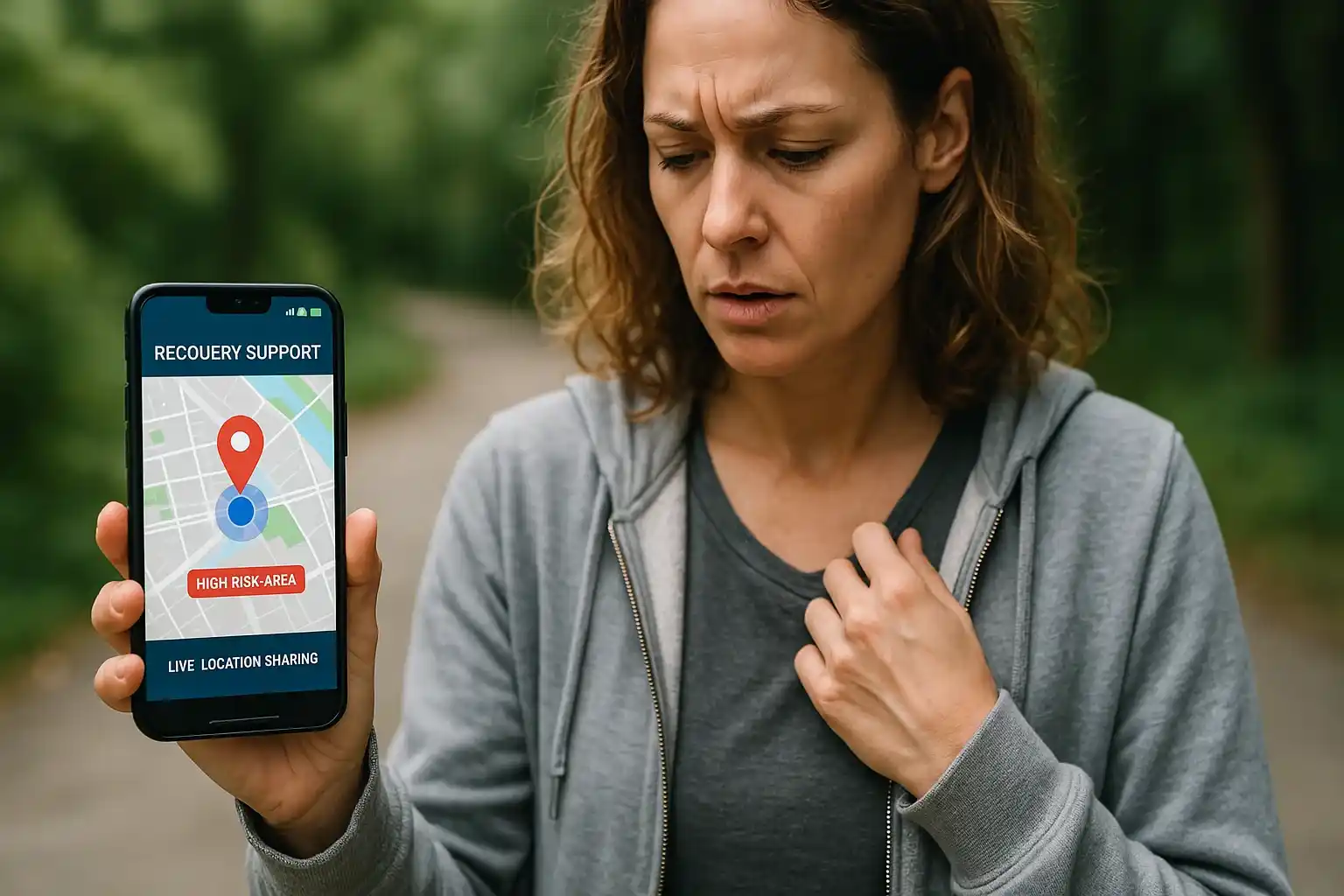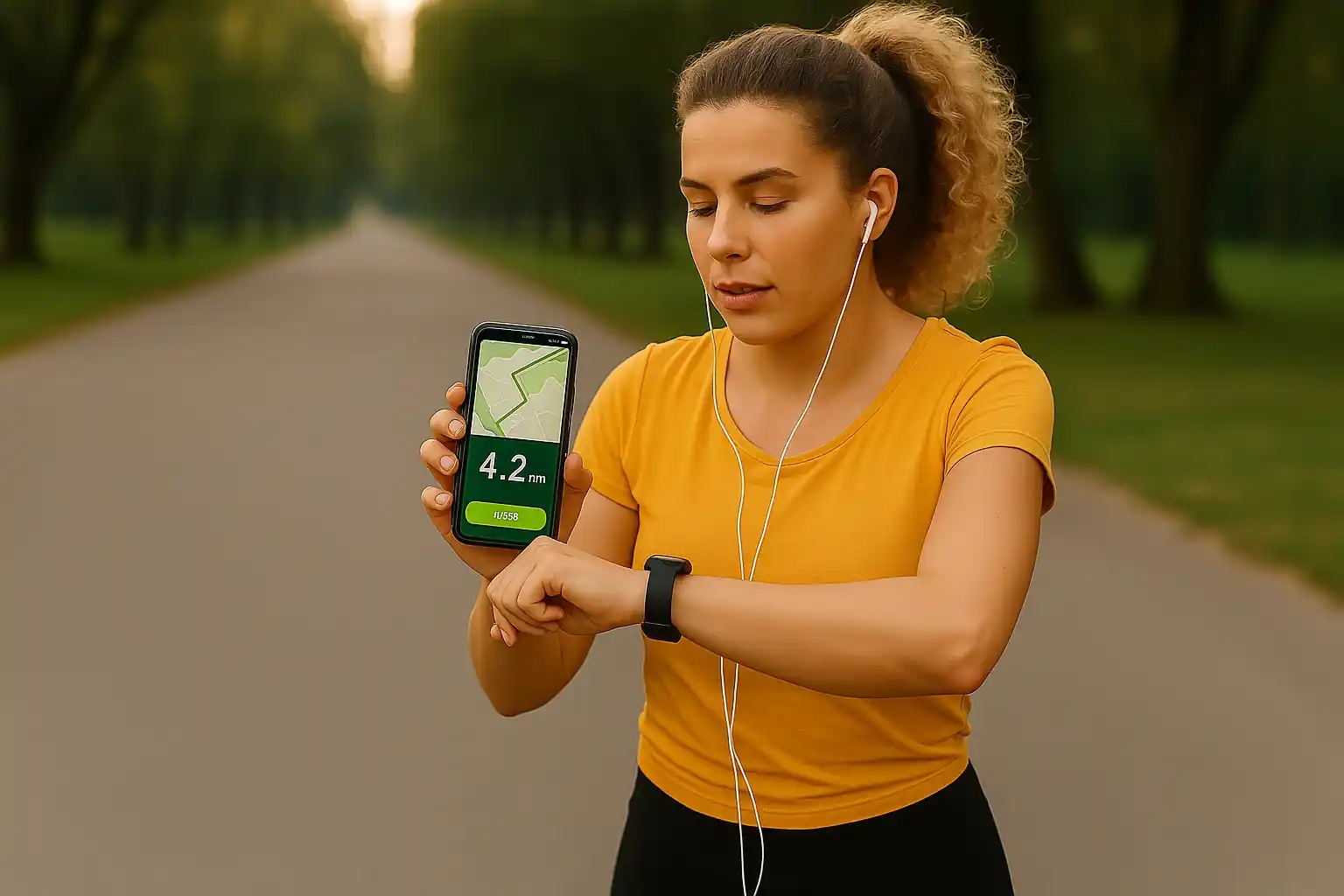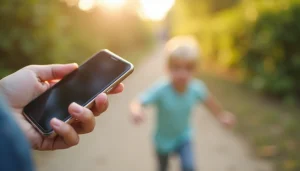Modern location tracking technologies are an integral part of our lives, as today we use them for security, route planning and keeping track of loved ones. But have you ever thought that the feature to track a phone by the number can help us more than in issues of basic security, but in other, sometimes unexpected situations as well? Well, stay with us to know some facts about the use of location tracking technologies that may surprise you. Here you can also learn how we can make our lives safer and more convenient in many different areas due to them. If you are ready, then let us begin.
Fact 1: Helping in Addiction Recovery
With a tracker like Number Tracker, recovering people can stay away from high-risk places – bars, drug outlets, or any other places that might tempt them to relapse. The app provides real-time location tracking, allowing trusted friends, family or therapists (by arrangement) to keep a finger on the pulse and make sure you are in a safe atmosphere.
This kind of support is not control, but a solid defense. Due to knowing that someone has your back, you may feel a huge difference, as it goes about accountability and support without making you feel like you are constantly being watched. By the way, the app has a user-intelligent interface, a built-in AI assistant you can trust with your day-to-day questions, and a tolerant attitude: you can’t be tracked undetected unless you’ve given permission to do so (to whom – it is up only for you).

Fact 2: Improving Logistics and Delivery Efficiency
Today, location tracking is more than a tool to keep people safe, it is a revolution in industry, especially in logistics. For businesses, delivering goods on time and minimizing delays is a constant challenge. But location tracking helps simplify and streamline the process: with real-time tracking, companies can monitor drivers and shipments, adjusting routes to avoid traffic jams or unforeseen delays.
For consumers, this means less frustration because they can track their packages or groceries, knowing exactly when to expect them.
For example, food delivery services like Uber Eats and DoorDash use location tracking to inform customers of the status of their order. Instead of nervously waiting and wondering where the driver is, customers can make just a couple of clicks to see if their favorite pancakes or teriyaki chicken is on its way to their house.
Fun fact: Studies show that companies that use location tracking have a 30% increase in on-time deliveries, which means fewer delays and better customer service.
Fact 3: Application in Psychology — Understanding Behavior
Of course, you’ve read many times today that location tracking is not just for navigation. So what else is it used for today? Well, it also helps psychologists understand how our surroundings affect our mental health, and namely due to analyzing movement patterns, experts can determine which places provoke stress and which ones promote relaxation.
For example, if someone feels anxious in crowded places but finds peace in nature, tracking their location can help reveal these patterns. And further this data will be used to create tailored strategies to fight against stress and improve your overall well-being.
Apps that help monitor location and mental wellbeing:
| App | What It does | Best for |
| Google Fit | Tracks daily movement, including walks and workouts | General health and activity tracking |
| Strava | Logs outdoor activities like running, cycling, and hiking | Identifying calming vs. stressful environments |
| Daylio | Combines mood tracking with location history | Understanding emotional triggers |
Smart tip: Try keeping a “mood map” of your daily locations. After a week, look for patterns and see: do certain places make you feel more stressed or more at peace? Use this insight to plan your days around places that boost your mental well-being!
Fact 4: Making Large Events Smoother and Safer
Today, location tracking is an important consideration when organizing mass events such as concerts, festivals or marathons. When thousands of people are in the same room, managing visitors, staff and volunteers can be chaotic, but real-time tracking is a hidden superhero: thanks to it, event organizers are able to keep things running smoothly, track crowd movement, prevent congestion and react quickly in general (if something goes wrong).
Medical teams at events, for example, can also benefit from location tracking: if someone needs urgent help, responders can be dispatched instantly, reducing wait times and increasing safety.
Pro tip: Before you go to a big event, arrange a meeting place with friends in case your phone runs out of battery or loses signal. It is easier to regroup when you have a backup plan, even without an app!
Fact 5: Boosting Engagement in Courses and Activities
Location tracking isn’t just for logistics, what is more, it is also improving education and fitness programs. Be you are in a virtual classroom or a running challenge, tracking movement and participation helps you stay engaged and accountable.
For example, at fitness camps, coaches use apps like Strava and Nike Run Club to track participants’ progress, make sure they stick to their intended routes and maintain a set pace. Peloton goes even further and integrates location-based leaderboards to offer people some friendly competition.
By the way, online learning isn’t without resources either. For example, platforms like Kahoot! and Google Classroom use location tracking to monitor attendance and participation. This helps instructors see when students are engaged and provide support when needed. Even corporate training programs use tools like Moodle to track participation in location-based team building activities.
Smart Hack: Set location-based reminders for your goals. For example, if you’re trying to run more often, schedule a notification that pops up when you pass your favorite park. A little push at the right time can boost consistency!

The Future Is Near – and It’s Smarter than It Looks
Location-based technologies are no longer just a tool for plotting routes or finding a lost phone. They are slowly becoming an invisible part of our lives: from recovery support to optimizing logistics, from psychology to education, the possibilities that location tracking opens up are impressive. And who knows what other amazing usage scenarios lie ahead? Maybe tomorrow your phone will tell you not just the shortest path, but the best route to health, success and peace of mind.

